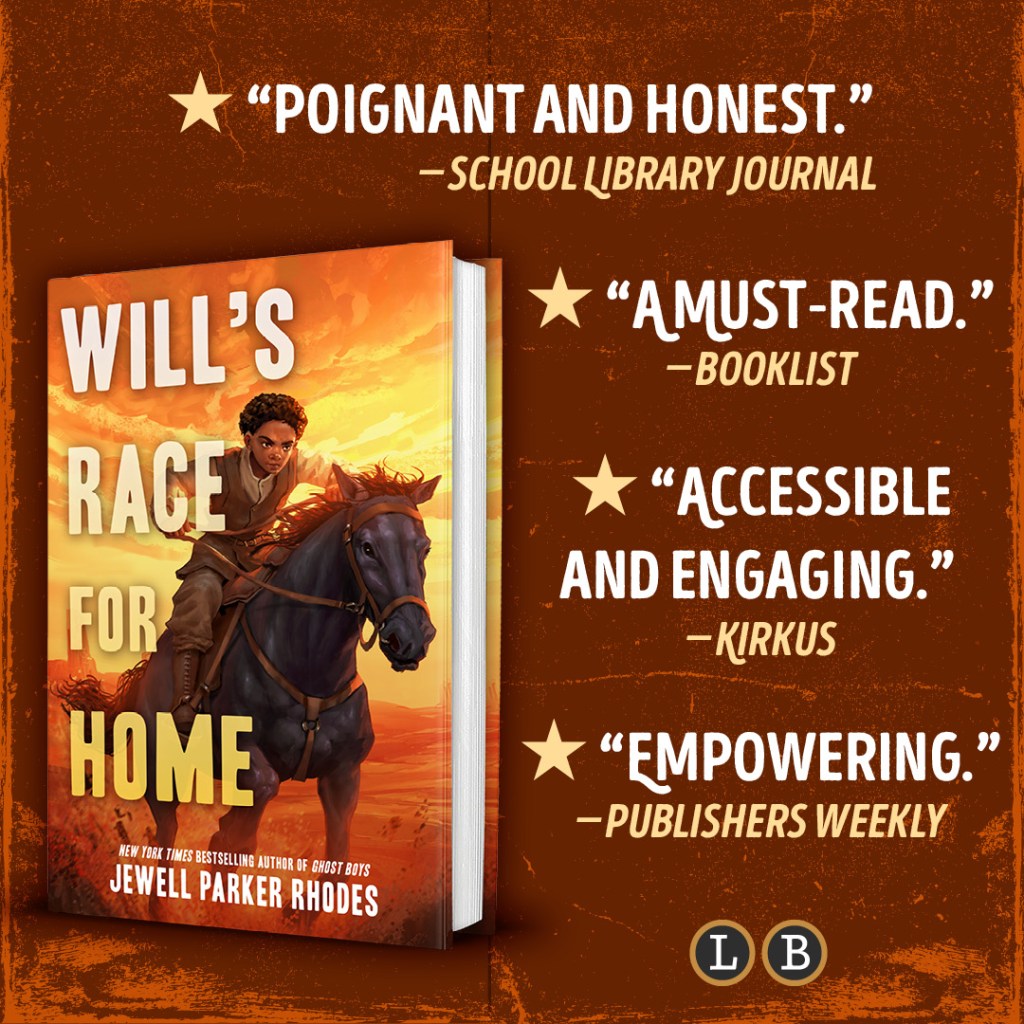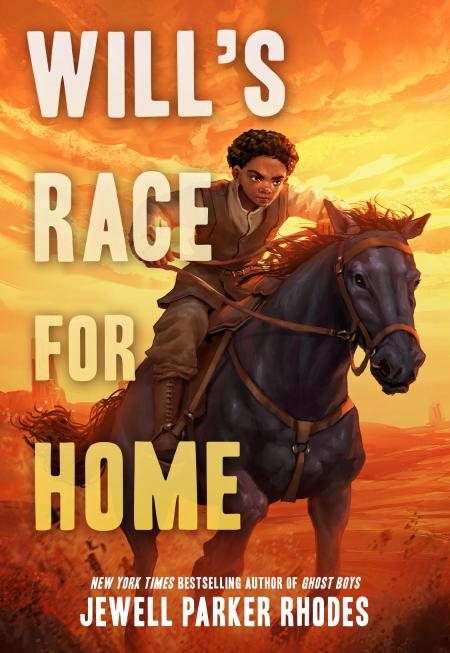Shopping Cart
Description
A New York Times bestseller!
★ “Rhodes deftly captures a unique aspect of this historical event, with a perspective that is often under-represented in historical fiction. A poignant and honest look at the trials of racism that defined the historic land rush; a must-buy.” –School Library Journal, starred review
Bestselling and award-winning author Jewell Parker Rhodes goes West in this thrilling adventure story about a son and his father who set out to win land during the Oklahoma Land Rush–if they can survive the journey.
It’s 1889, barely twenty-five years after the Emancipation Proclamation, and a young Black family is tired of working on land they don’t get to own.
So when Will and his father hear about an upcoming land rush, they set out on a journey from Texas to Oklahoma, racing thousands of others to the place where land is free—if they can get to it fast enough. But the journey isn’t easy—the terrain is rough, the bandits are brutal, and every interaction carries a heavy undercurrent of danger.
And then there’s the stranger they encounter and befriend: a mysterious soldier named Caesar, whose Union emblem brings more attention—and more trouble—than any of them need.
All three are propelled by the promise of something long denied to them: freedom, land ownership, and a place to call home—but is a strong will enough to get them there?
★ “Rhodes deftly captures a unique aspect of this historical event, with a perspective that is often under-represented in historical fiction. A poignant and honest look at the trials of racism that defined the historic land rush; a must-buy.” –School Library Journal, starred review
Bestselling and award-winning author Jewell Parker Rhodes goes West in this thrilling adventure story about a son and his father who set out to win land during the Oklahoma Land Rush–if they can survive the journey.
It’s 1889, barely twenty-five years after the Emancipation Proclamation, and a young Black family is tired of working on land they don’t get to own.
So when Will and his father hear about an upcoming land rush, they set out on a journey from Texas to Oklahoma, racing thousands of others to the place where land is free—if they can get to it fast enough. But the journey isn’t easy—the terrain is rough, the bandits are brutal, and every interaction carries a heavy undercurrent of danger.
And then there’s the stranger they encounter and befriend: a mysterious soldier named Caesar, whose Union emblem brings more attention—and more trouble—than any of them need.
All three are propelled by the promise of something long denied to them: freedom, land ownership, and a place to call home—but is a strong will enough to get them there?

Book Club Guide
- Will opens the book with the words, “My father is a far-thinking man” (p. 1). By the end, he describes himself using those same words but “with different dreams” (p. 190). What do you think Will means by “far-thinking”? How are Will’s dreams different than those of Father? How are Father’s different than Grandpa’s? What does one generation pass on to the next?
- Will and his family face a number of scary situations on their race to Oklahoma. What does it mean to be afraid? What does it mean to be brave? What does it mean to survive?
- Will notes that “reading is something I can do that Father and Grandpa can’t” (p. 31). How does Will’s ability to read help him? Why do words, language, and stories matter?
- Caesar and Father are both role models for Will. How are they different? What does Will learn from each of them?
- Caesar tells Will that “a war won doesn’t necessarily change people’s minds, hearts. Hate doesn’t disappear” (p. 73). What do you think Caesar means by this? How can you change minds and hearts?
- Father keeps secrets from Will. Are secrets always a bad thing? Can you ever know everything about another person?
- Will maintains a close relationship with both Belle and Midnight. How do animals and nature help and hinder Will? Why is it important to respect nature?
- On his journey, Will encounters conflict and violence in different forms. Do you think violence can solve problems? How do characters’ choices create or diffuse conflict?
- After his adventures, Will insists that “the boy in me is done” (p. 169). Why does he think that? Is he right? What do you think makes the difference between a child and an adult?
- In the Afterword, Jewell Parker Rhodes asks “Is land to be enjoyed and cared for by all? Should it be owned? By the few? the many? Is land a prerequisite for power and wealth? Or a necessary refuge for a family, a community? A home?” (p. 194-5). How do Will and the members of his family think about land, home, and freedom? What do you think?
Newsletter Signup
By clicking ‘Sign Up,’ I acknowledge that I have read and agree to Hachette Book Group’s Privacy Policy and Terms of Use

